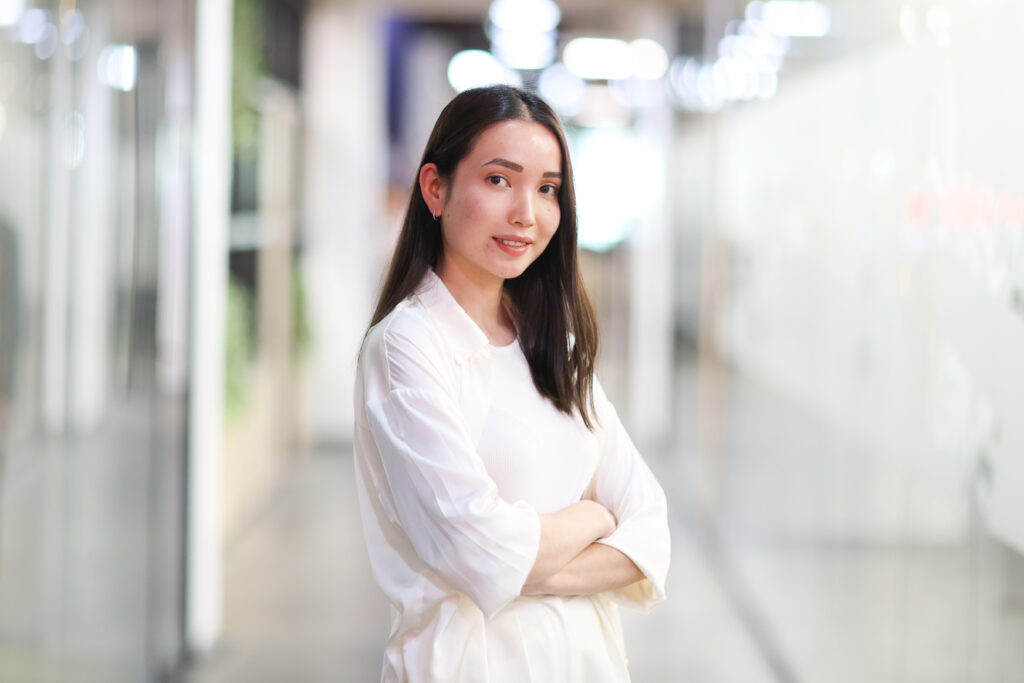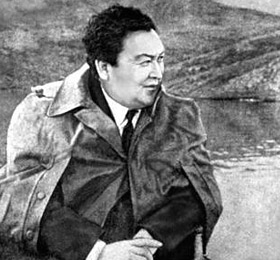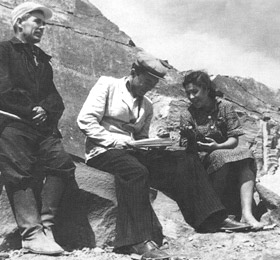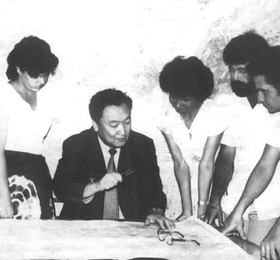Alua Yeskendir
Specialization: Public Health. Internship: University of California, Los Angeles, USA.
 28-year-old UNICEF employee Alua from Kokshetau. Professionally, she is interested in the topic of mental health, and in her free time she draws, reads, enjoys swimming and Pilates. Once the young lady realized that she was interested in considering not the health of individual members of society, but the well-being of people as a whole. At the beginning of 2022, she won a research internship competition at the Yessenov Foundation, and in the summer she went to the United States to study one of the most important health problems in today’s Kazakhstan.
28-year-old UNICEF employee Alua from Kokshetau. Professionally, she is interested in the topic of mental health, and in her free time she draws, reads, enjoys swimming and Pilates. Once the young lady realized that she was interested in considering not the health of individual members of society, but the well-being of people as a whole. At the beginning of 2022, she won a research internship competition at the Yessenov Foundation, and in the summer she went to the United States to study one of the most important health problems in today’s Kazakhstan.
How was the grant competition for you?
Research Internships is a unique program, it develops science in our country. I was surprised by the selection process of candidates, as it was significantly different from all the contests in which I participated before. Logic and creativity tasks were especially exciting. And most importantly, the contestants were young and talented people, from whom I have learned a lot even in a short time of communication during the competition.
Any mistakes that you made at the competition?
I think there is no concept of “mistakes” in contests. Even “mistake” can sometimes be the right answer. My advice is not to be afraid to make mistakes and be yourself. A mistake for someone can be a solution to your problem.
Where did you do your internship?
At the Jonathan and Karin Fielding School of Public Health at the University of California, Los Angeles (UCLA). I received an invitation from Daniel Eisenberg, a professor at the School. She also worked directly with Mark Kaplan, a professor of social sciences. Aisenberg studies the problems of mental health of adolescents and young people, and Kaplan studies the problem of suicide. Even before I arrived, we elaborated a work plan. So I was able to prepare well, collect the necessary data, study the problems, and, having arrived, immediately get to work. Both professors were open, constantly helped me, gave me advice.
What was researched?
The problem of suicide in Kazakhstan. According to WHO data for 2019, Kazakhstan ranks 17th in the world in terms of suicide rate, the indicator is very high, especially among men. We also have an extremely high rate of alcohol consumption, which is above the global average. There is a link between suicide and alcohol consumption, and we have investigated this issue.
Why suicides?
My dissertation was devoted to the problem of suicide in our country. The internship gave me the opportunity to continue my research. Despite the severity of the problem, it is little studied here, and obtaining knowledge from international experts is very useful.
What results have been achieved?
In a month and a half (due to the activity at my work at UNICEF, I was unable to take there a leave of 3 months to cover the entire internship), we completed the data analysis and got interesting results. They were published in the prestigious international Journal of Affective Disorders. During the internship, I also got acquainted with the suicide data accounting system in the USA. Professor Aisenberg introduced me to the Healthy Minds Study, a national study of student mental health that has been conducted in America for many years. In the future, I also plan to work with the data from this study, which will improve my professional skills. The internship expanded my knowledge in the field of social and behavioral sciences, helped to determine the goals for the future and the focus of my work. During the internship, among other things, I learned to prioritize, plan time better, and put my mental health first.
What advice would you give to future participants of the program?
I would advise the winners to start sending letters to professors ASAP after the announcement of the results of the competition. After all, the process of concluding an agreement with the university, applying for a visa will take a lot of time. It is also important to specify the letter as much as possible. No matter how many of them you send, if your key interest and desired results are not clearly spelled out there, it will be difficult for professors to determine how their research and interests relate to yours. When you write to the professor, do not forget to indicate what exactly you are interested in the work of the scientist. This does not guarantee an invitation, but it will let the professor know that you are in the topic and can be useful. And, of course, I recommend making a work plan in advance and doing your homework. This will increase the effectiveness of the internship and allow you to get to work faster.
How did you spend your free time in L.A.?
I managed to get to know other students who are working on mental health research, and exchanged experiences with them. I visited many museums, attractions and parks. The Los Angeles Museum of Contemporary Art was especially memorable. There you can not only see how art reflects modern society problems, but also plunge into the realities that millions of people face every day.
Seen by: 1,186





